[HCI] L2-4. Human Abilities
If you want to learn more Psychology
- Recommended Courses:
MIT’s Sensation and Perception, on MIT Open Courseware
The University of British Columbia’s AP Psychology, on edX
Duke University’s Visual Perception and the Brain, on Coursera
San Jose State University’s Introduction to Psychology, on Udacity
The University of Toronto’s Introduction to Psychology, on Coursera
Bit of psychology

- adopt ‘processor’ view of human
- interested in ‘What they can do?’ (phsycially, cognitively, …)
- Focusing
- how the person makes sense of input
- how they then act in the world
Input : Sensation and Perception
- Visual
- Auditory
- Haptic
Design Challenge : Message Alerts
- Problem
- 문자 메세지를 받았을 때 알려주는 기능을 어떻게 만들까?
- Constraint
- 핸드폰이 주머니에 있을 때나 테이블에 있을 때나, 어디에 있던 알림을 해줘야 한다
- 주변 사람들에게 방해가 되어서는 안된다 (너무 진동이 클 경우 방해됨)
- 한 방법(modality)에 제한할 필요 없다
- 단, 핸드폰에서 사용 가능한 sensor 기준으로만 제한해야 한다
- 핸드폰이 주머니에 있을 때나 테이블에 있을 때나, 어디에 있던 알림을 해줘야 한다
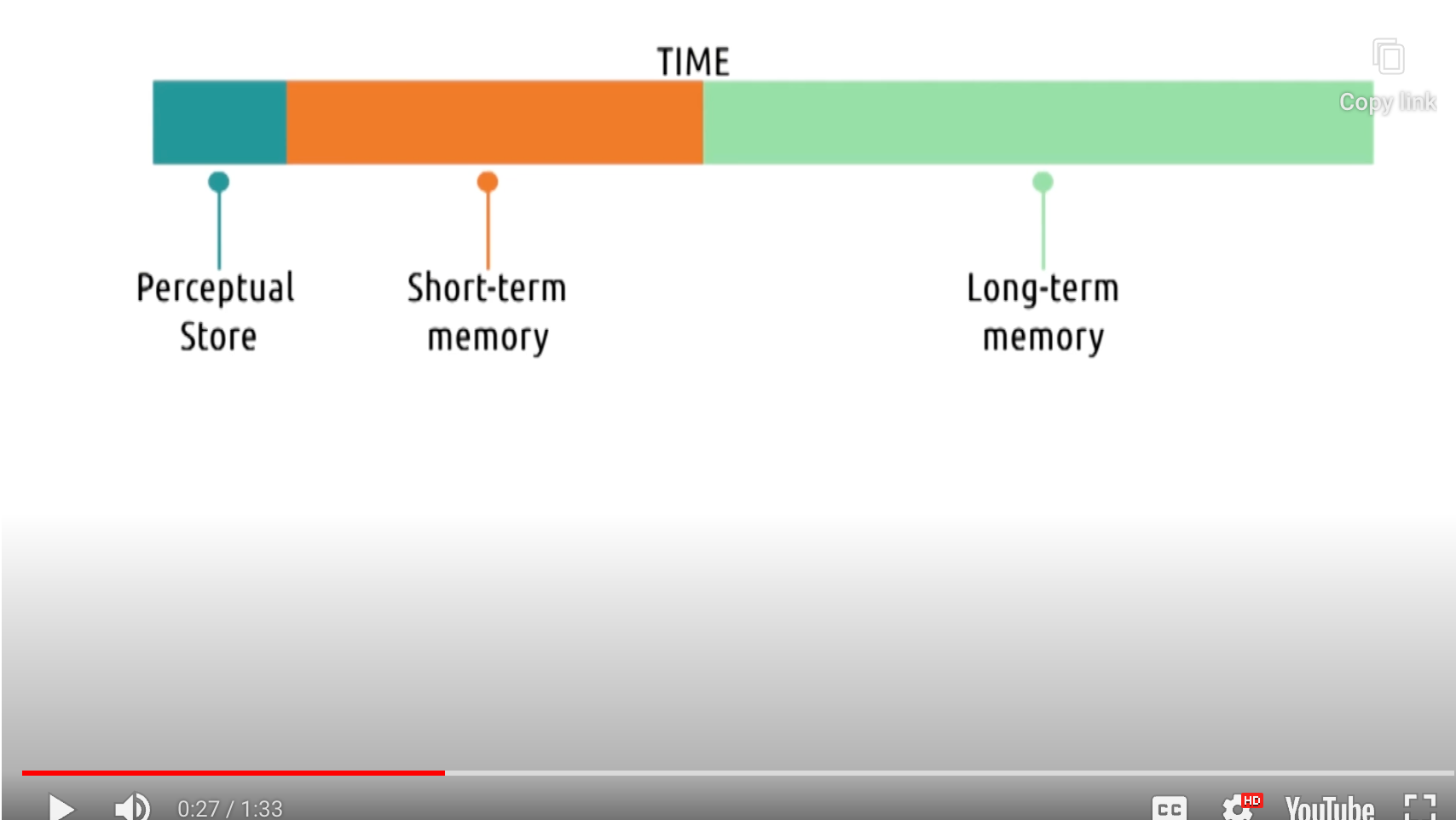
Memory
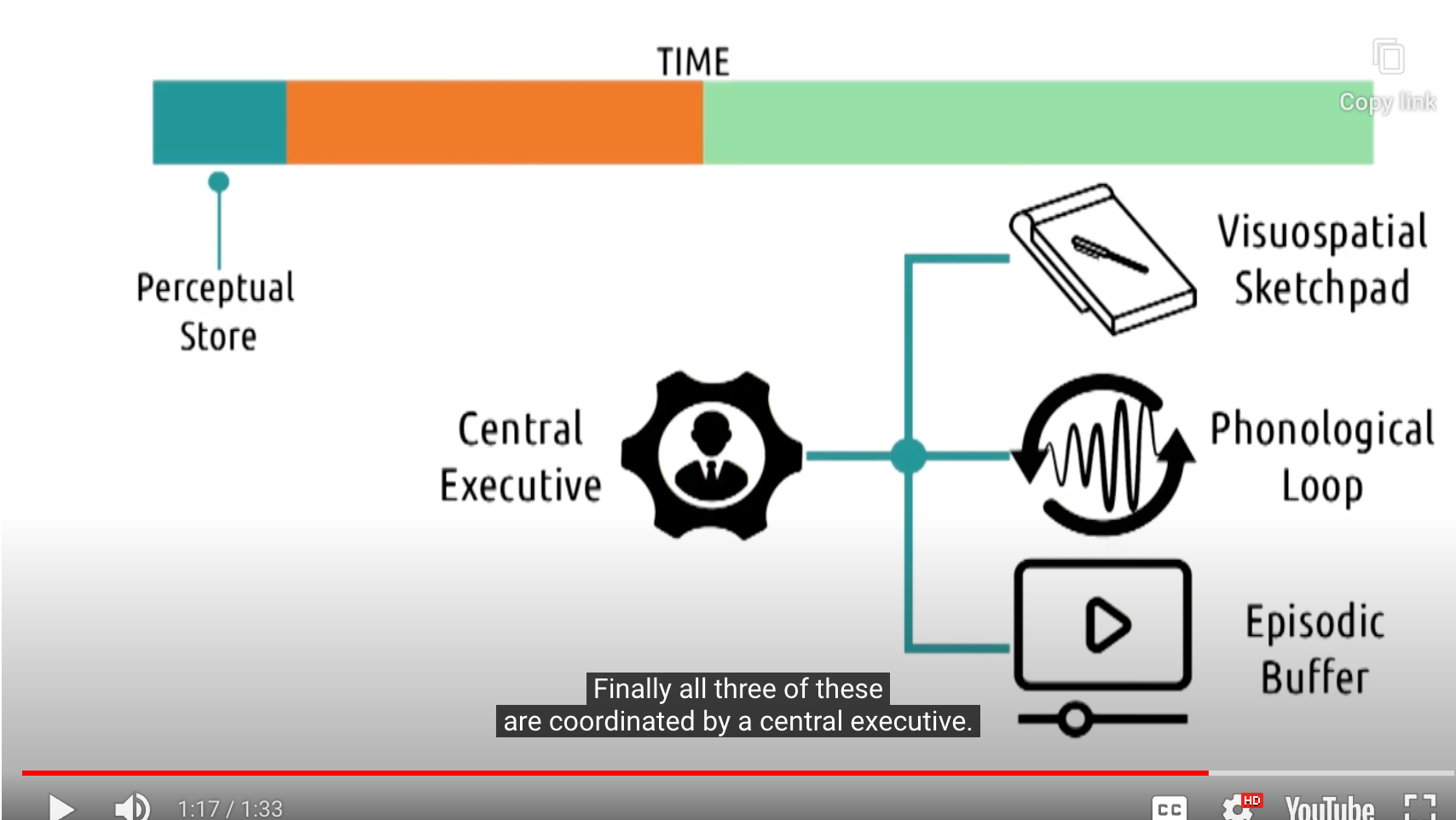
1. Perceptual Store
-
= 작업 기억(working memory)
- 1초 안쪽으로 지속되는 매우 짧은 기억
- 3가지 형태가 존재 = Central Executive
- Visuospatial Sketchpad
- Phonological Loop
- Episodic Buffer
-
Paper Reference:
-
Gobet, F., & Simon, H. A. (1998). Expert chess memory: Revisiting the chunking hypothesis. Memory, 6(3), 225-255.
-
Gobet, F., & Simon, H. A. (1996). Recall of random and distorted chess positions: Implications for the theory of expertise. Memory & cognition, 24(4), 493-503.
-
De Groot, A. D., Gobet, F., & Jongman, R. W. (1996). Perception and memory in chess: Studies in the heuristics of the professional eye. Van Gorcum & Co.
-
2. Short-term memory
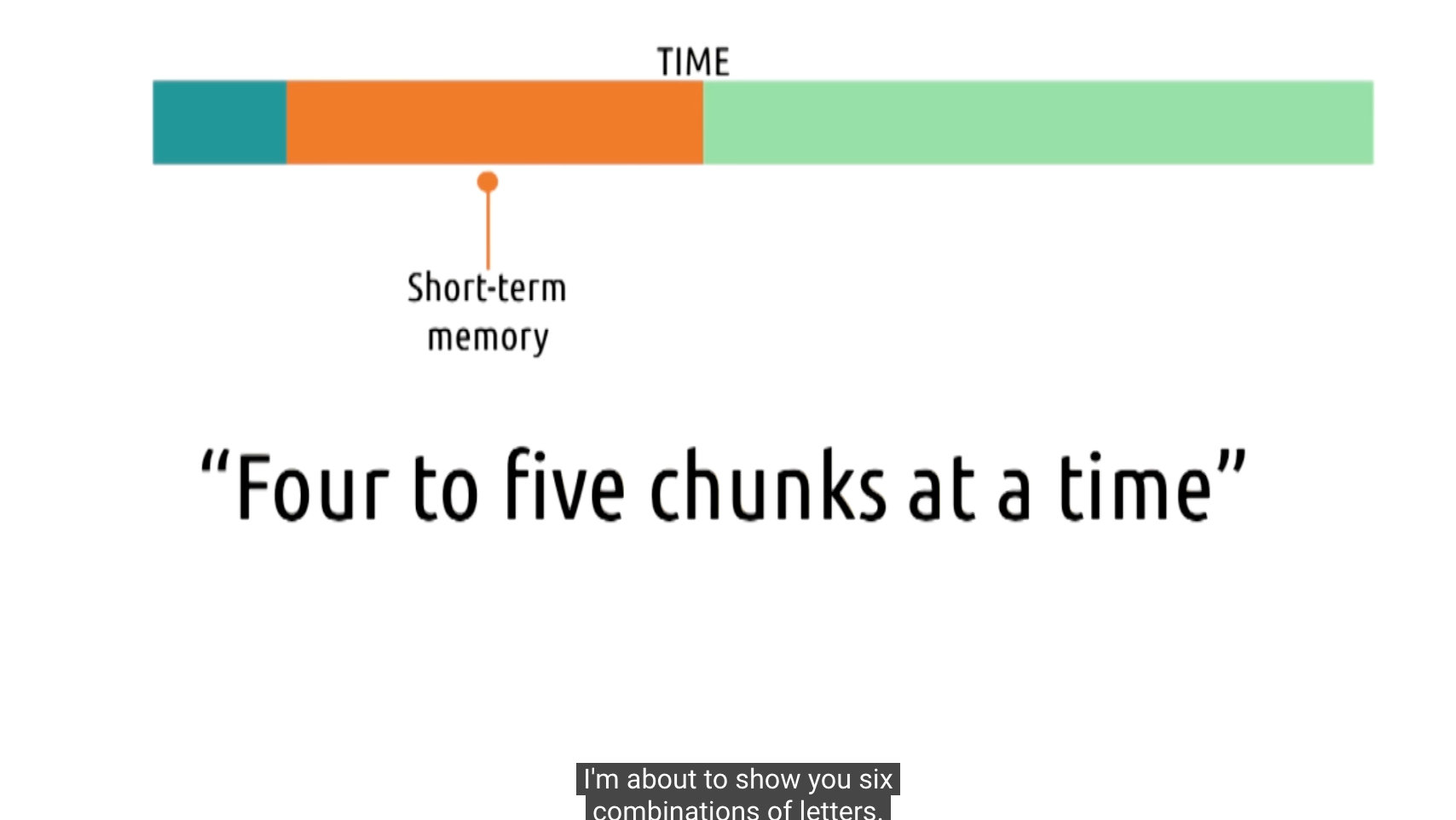
- one of our biggest concerns
-
사용자가 한번에 너무 많은 short-term 메모리를 처리하지 않도록 디자인 하는 것이 매우 중요
- Research show…
- User’s can store "Four to five chunks at a time"
- Idea of ‘chunking’
- 한 묶음으로 처리되는 정보의 일부분
- By helping them chunk things -> increase effective short term memory capacity
- 8 5 3 3 7 1 6 2 2 7 -> 85 3371 6227
- Menu bars, Tool strips 가 어디에나 보이는 이유(ubiquitous)
- 사용자는 아이콘이나 명령어를 기억하지 못할 수 있다
- 하지만 보면 알 수 있다
3. Long-term memory
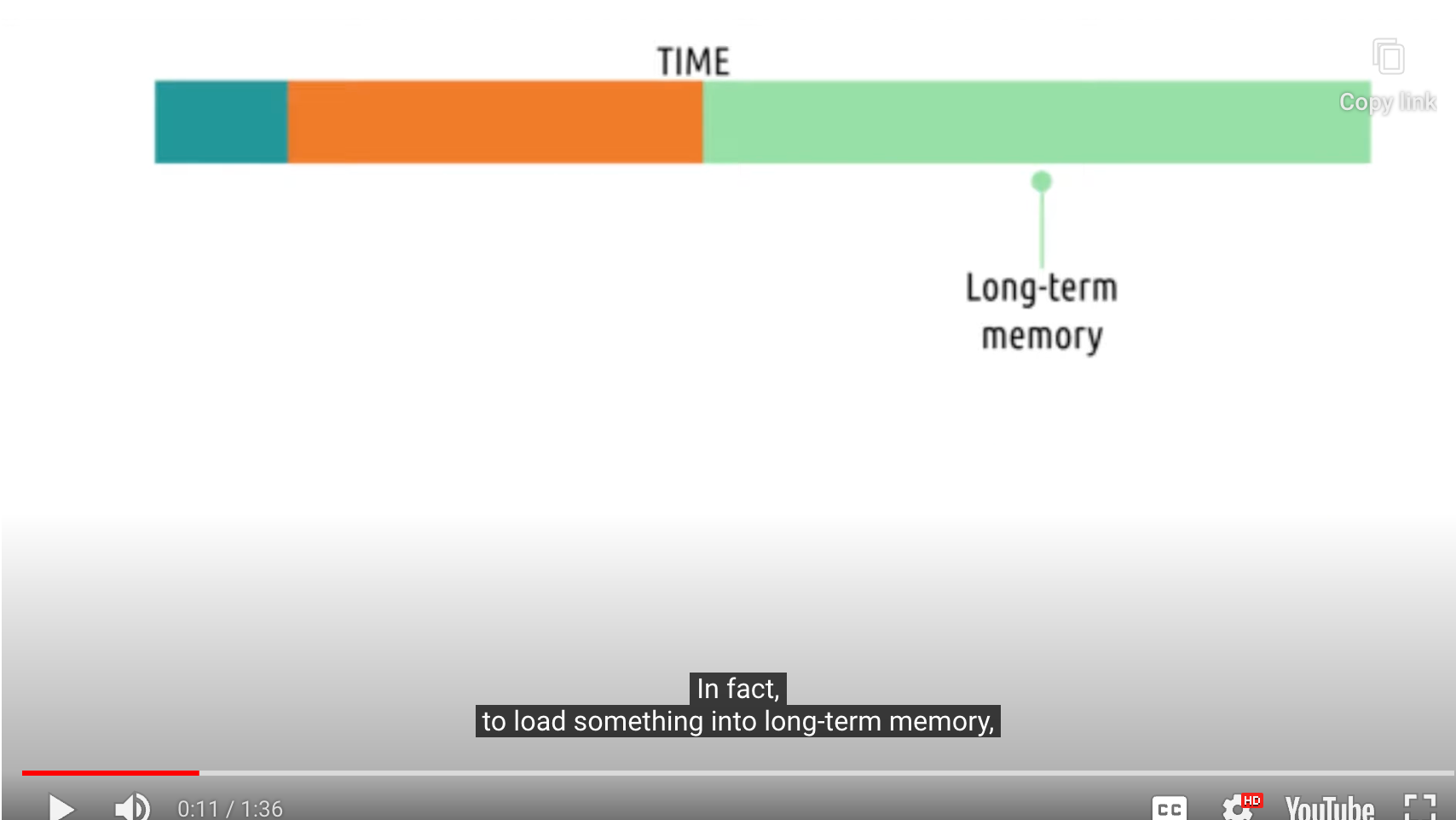
- 장기 기억에 저장하는 것은 쉽지 않다
- 단기 기억에 저장하는 게 더 쉬움
- To load something into long-term memory
- You need to put it into short-term memory several times

- Example
- Lightner System
Cognition
Learning
- When design interfaces?
- we hope the user has to learn as little as possible
- to find the interface useful
- ALSO, our interfaces should teach the user over time
- how to use them most efficiently
- we hope the user has to learn as little as possible
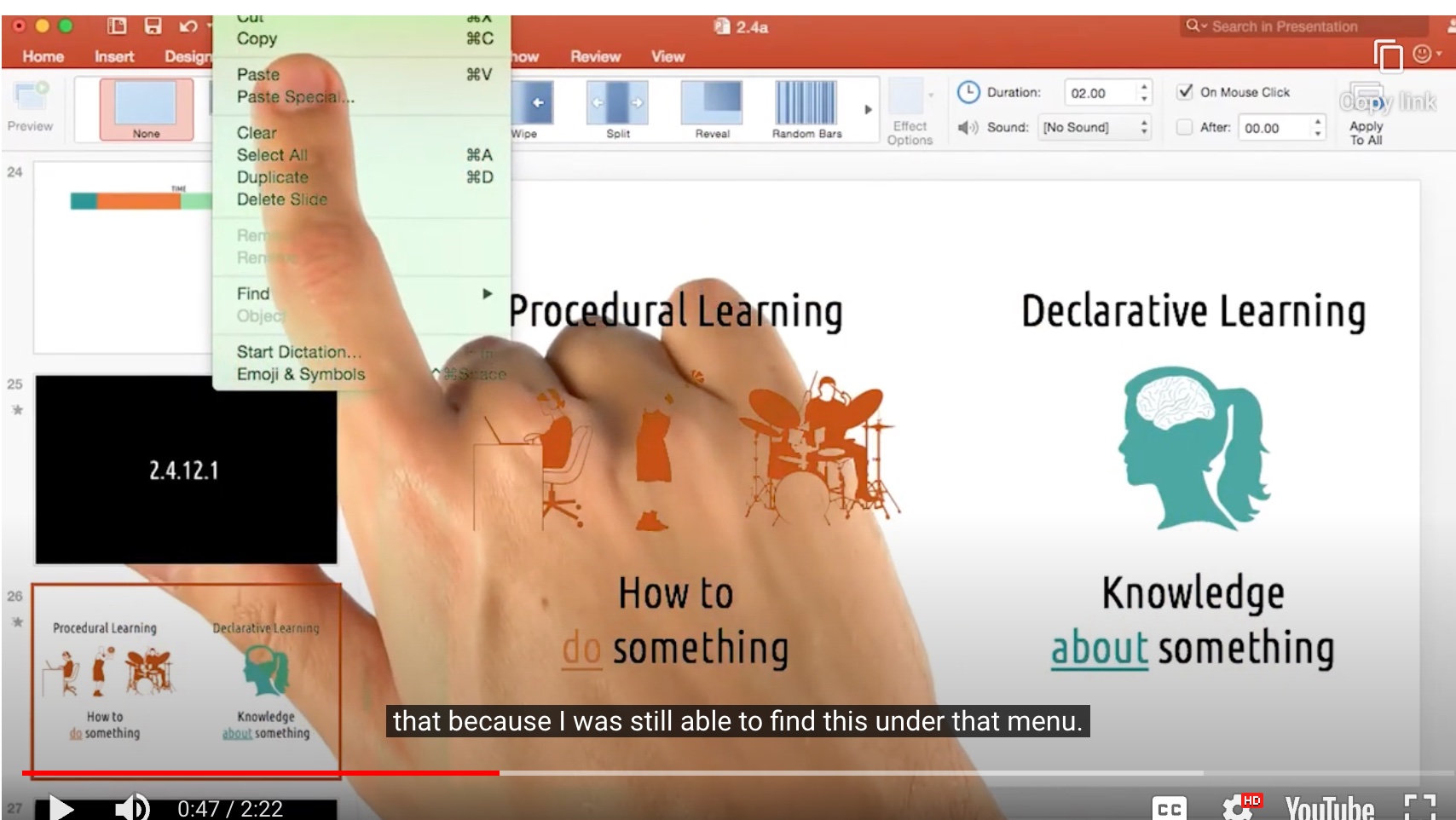
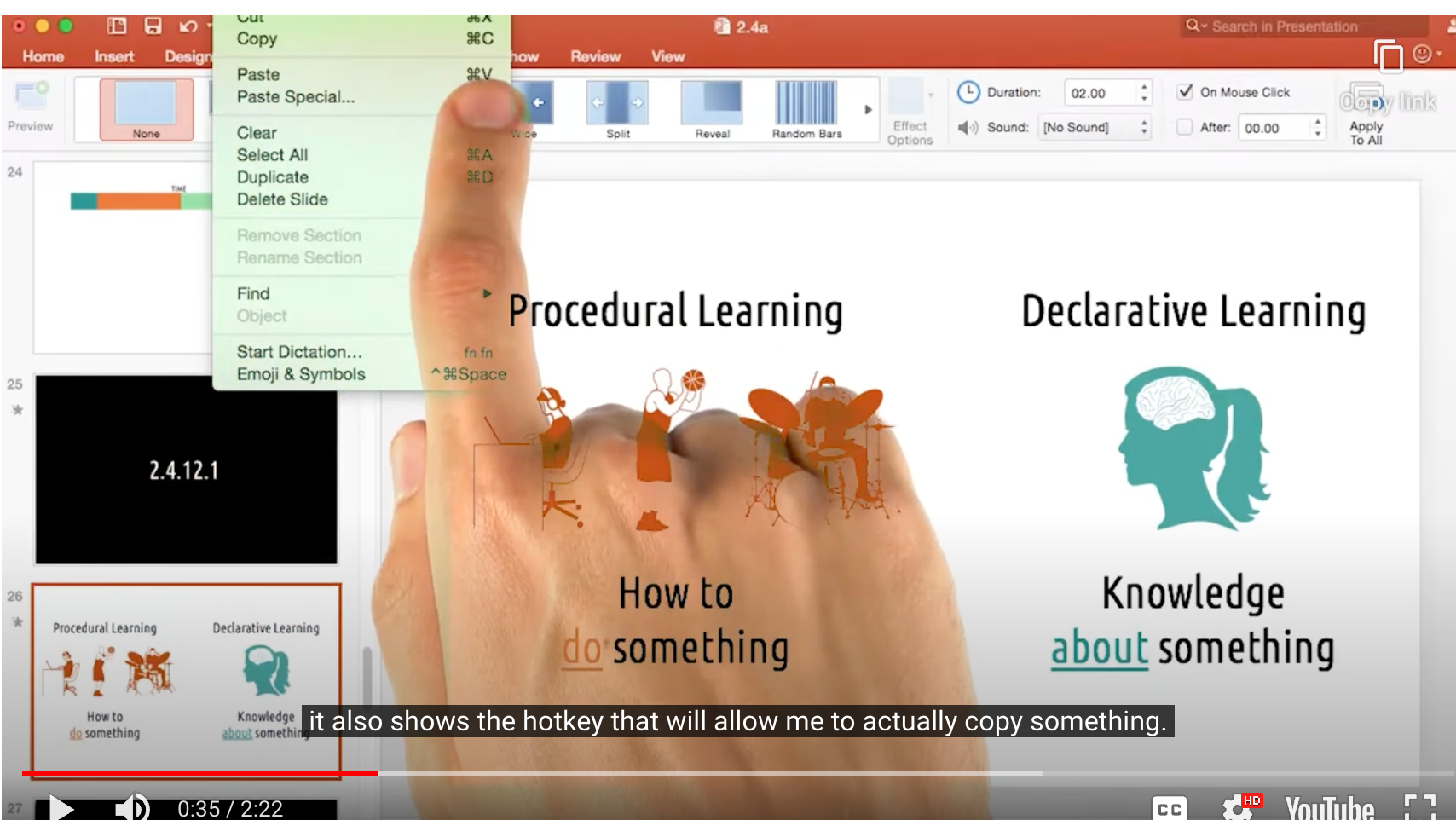
- Procedural Learning
- paste your clipboard here
- Declarative Learning
- what’s the hot-key for paste
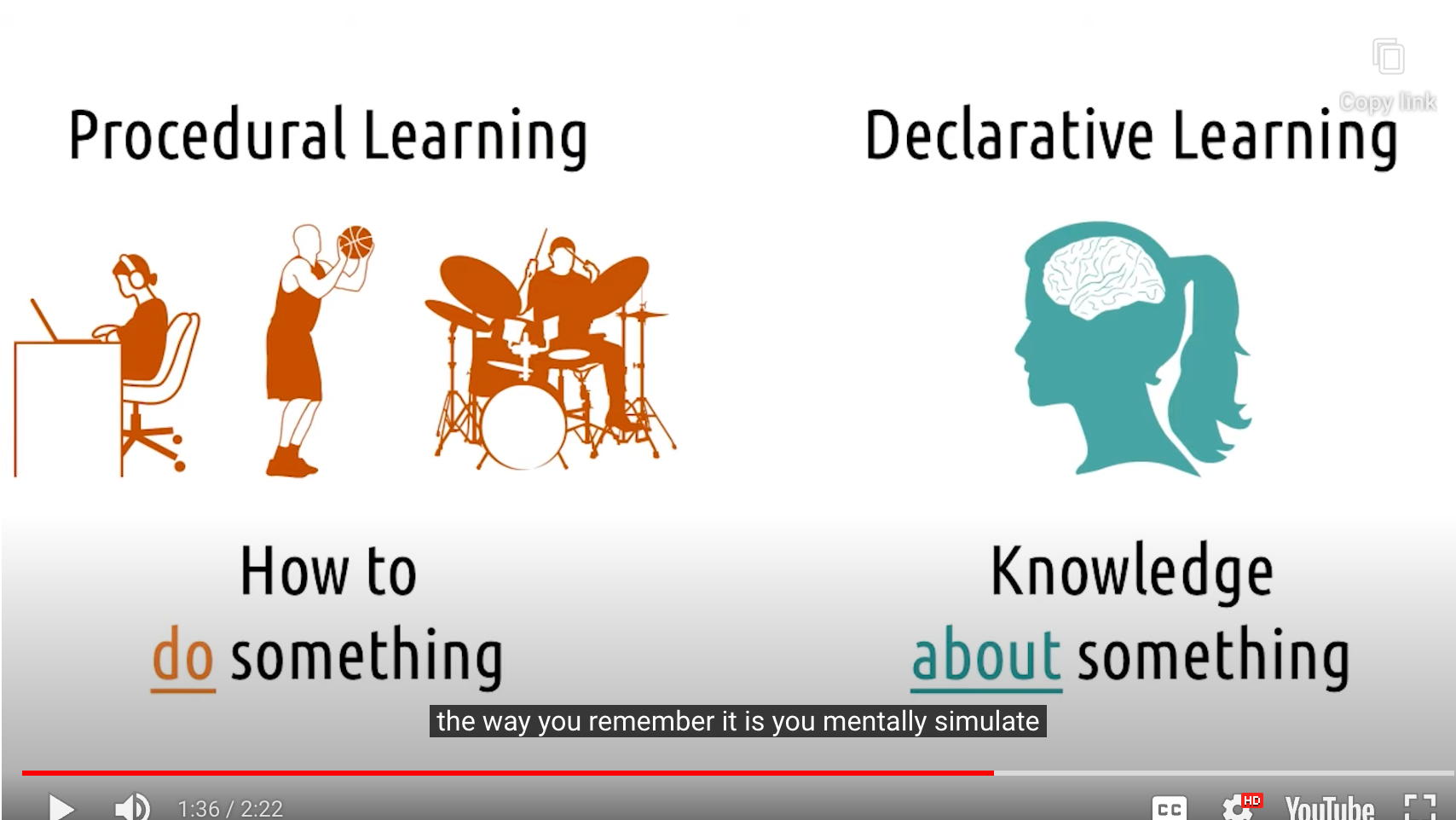
- 선언적 지식 = 우리가 의사소통 하는 방법이라면
- 방법적 지식 = 우리가 HCI에서 하는 것
- 강한 방법적 지식이 있으면 어떻게 하는지 잊고서 너무 자연스럽게 무엇을 할 수 있음
- Unconsciously Competent what you’re doing

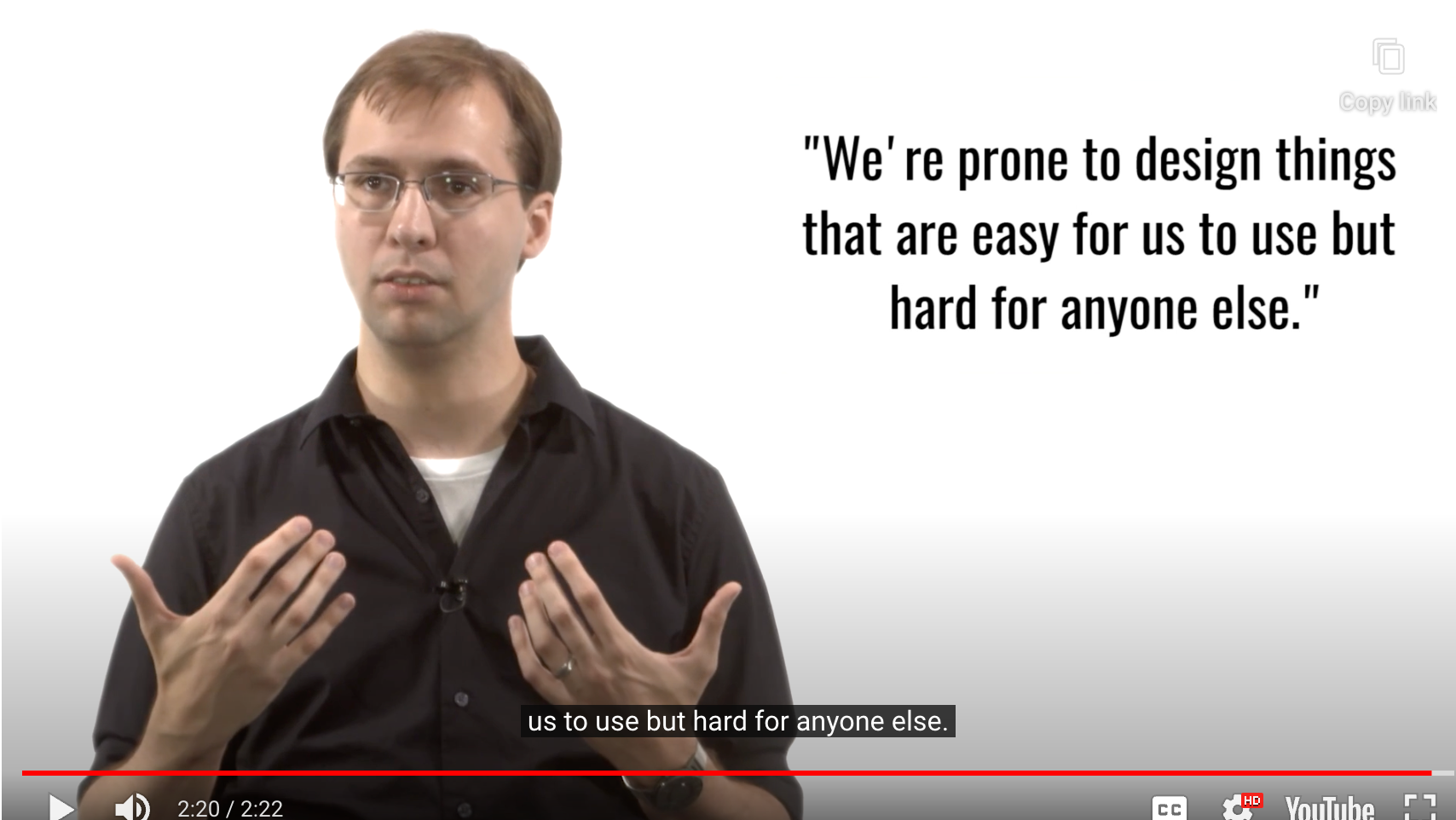
- 무의식적인 방법적 지식을 명확한 선언적 지식으로 표현하는 것이 어렵다
- We are prone to desing things that easy for us to use but hard for anysone else.
- 설명은 결국 선언적 지식일 수 밖에 없으므로
- We are prone to desing things that easy for us to use but hard for anysone else.
Cognitive Load
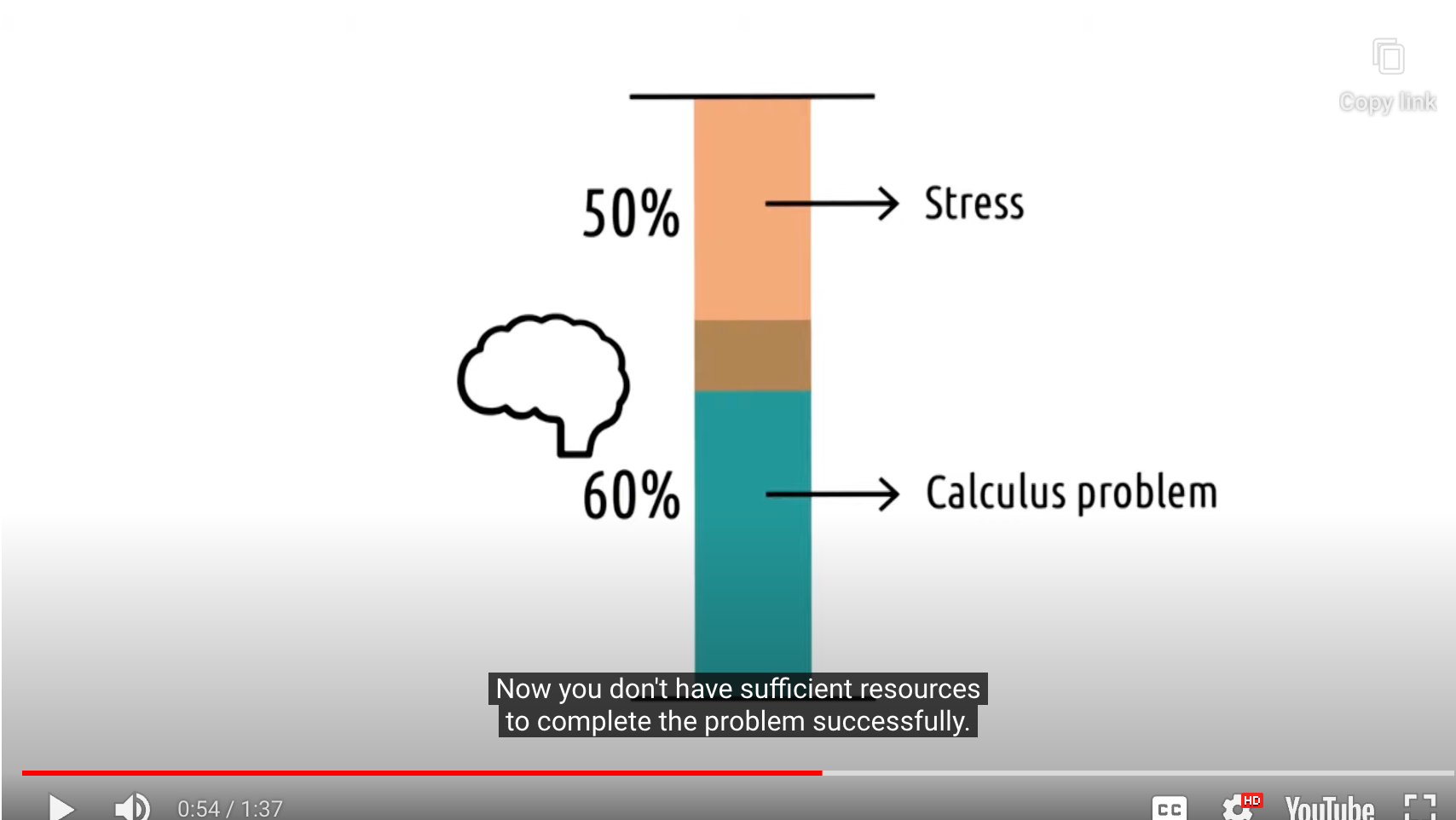
2 applications to working design
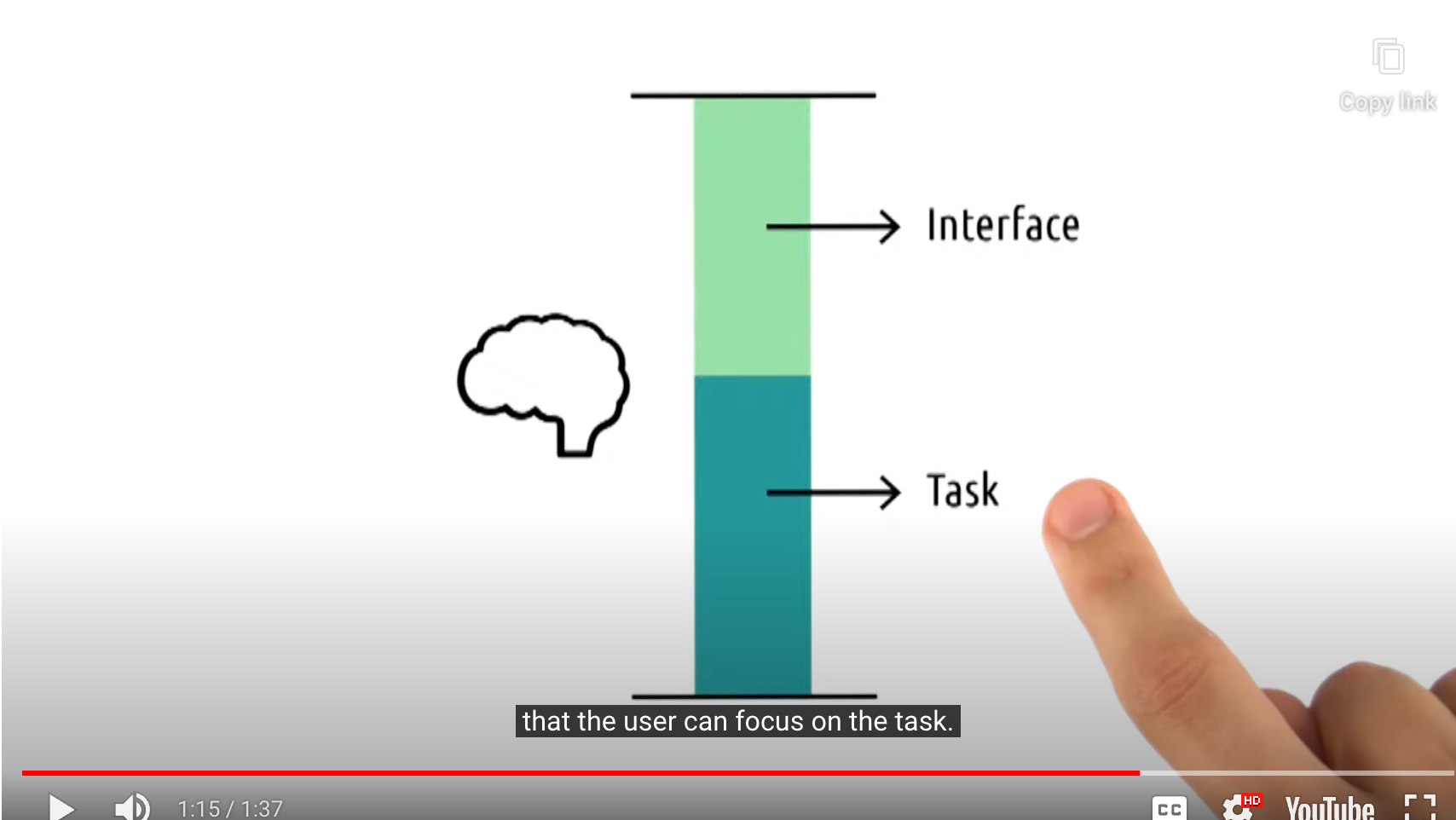
- Interface를 통해 Cognitive Load를 줄이는 것
- 사용자가 더 task에 집중할 수 있게!
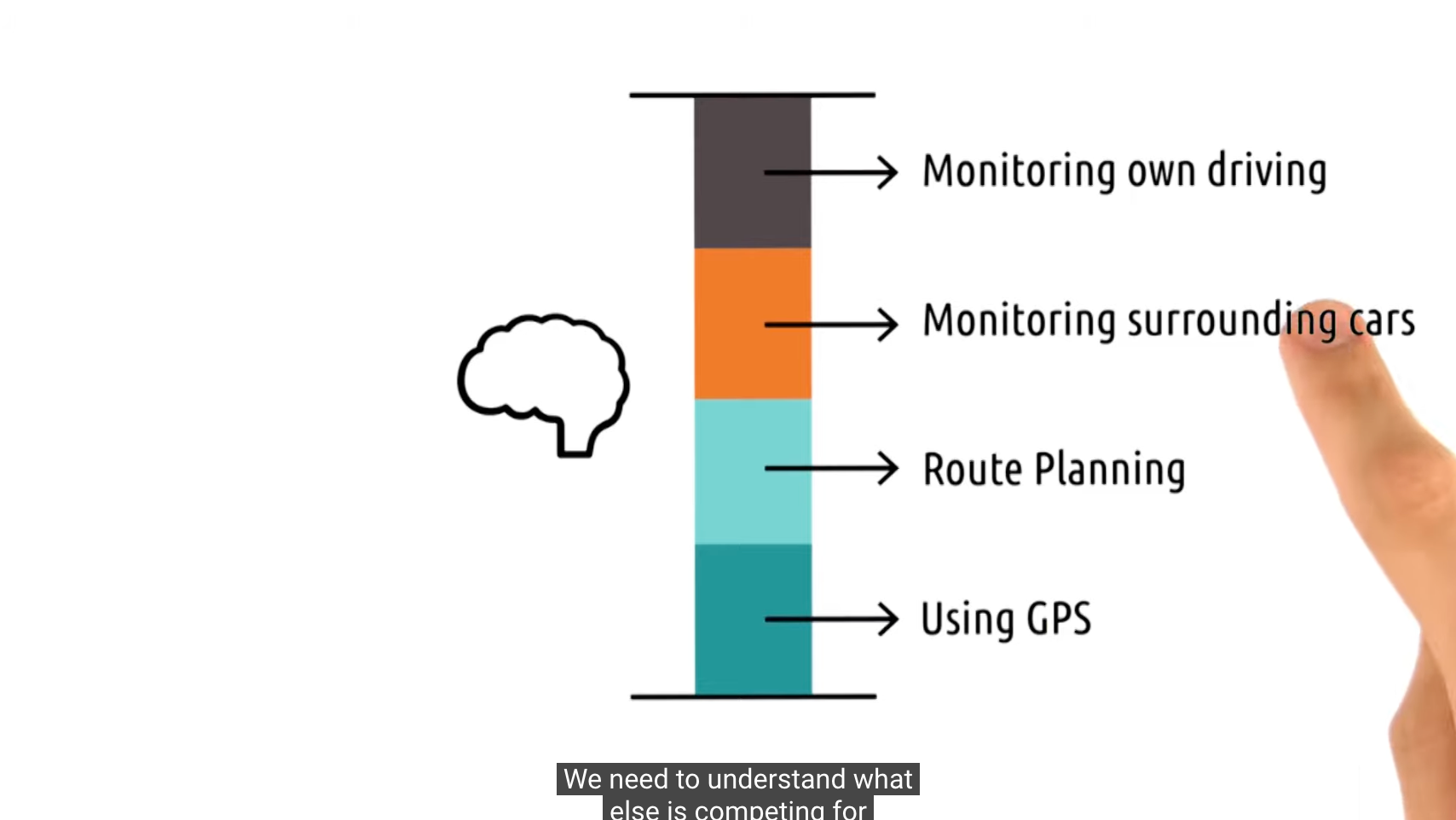
- Interface가 사용되는 상황 맥락을 이해하는 것
- 인터페이스 사용을 위해 사용자가 얼마나 Cognitive Resource를 사용할 수 있는지 확인!
5 Tips: Reducing Cognitive Load
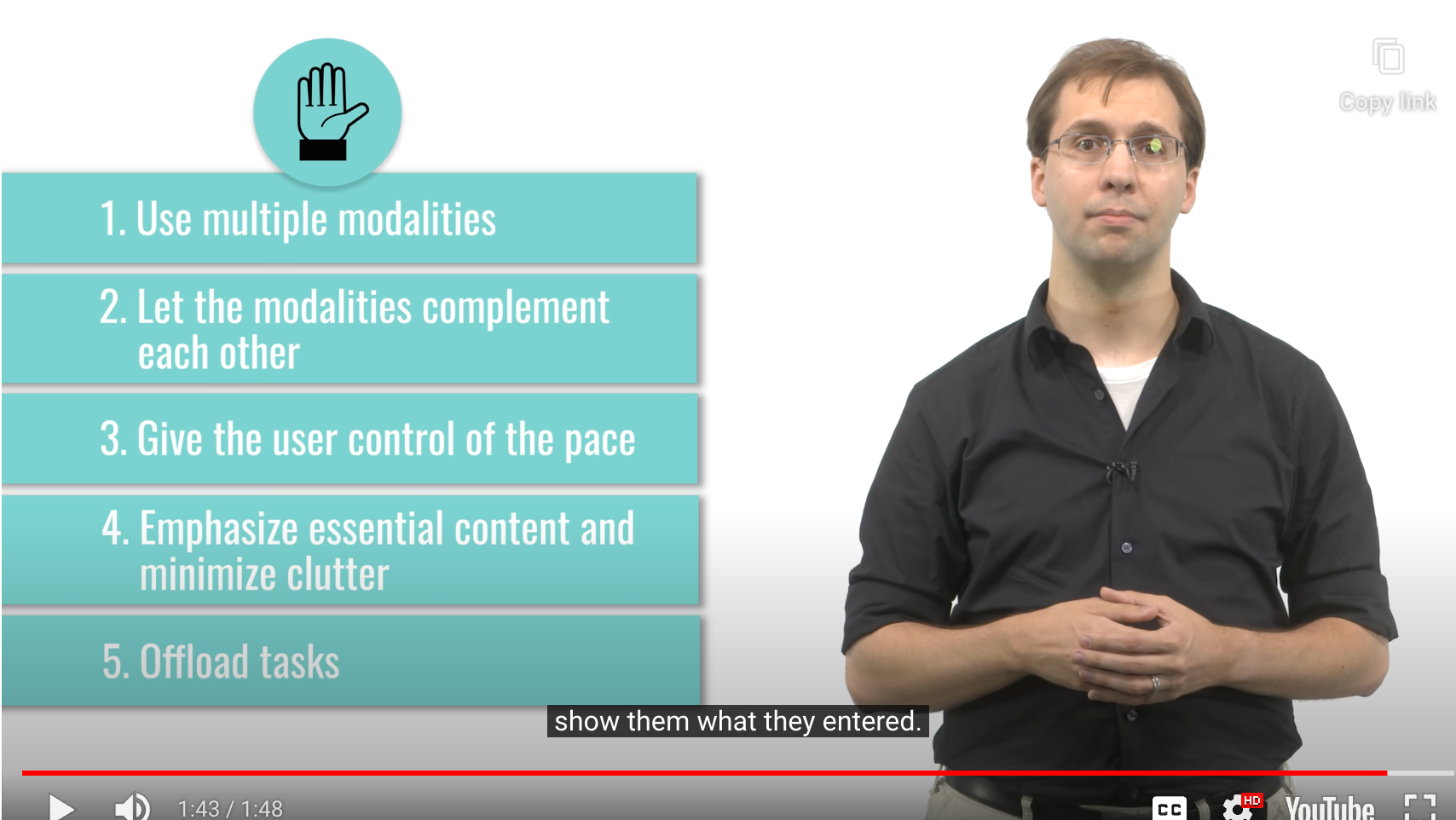
1. Use multiple modalities
- decribing things verbally and also present them visually
2. Let the modalities complement each other
- Each modality support, illustrate, explain the other
- Avoid user has to process 2 things at once (competing with the other)
3. Give the user control of the pace
4. Emphasize essential content and minimize clutter
- emphasize most common actions while still giving access to the full range of possible options
5. Offload tasks
- minimize users have to do or remember at each stage onto the interface
- 이전 화면을 기억해야 한다? -> 이전 화면 보여주기
- 수작업으로 해야되는게 있다? -> 자동화로 초기 작업 대신해주기
Moter System
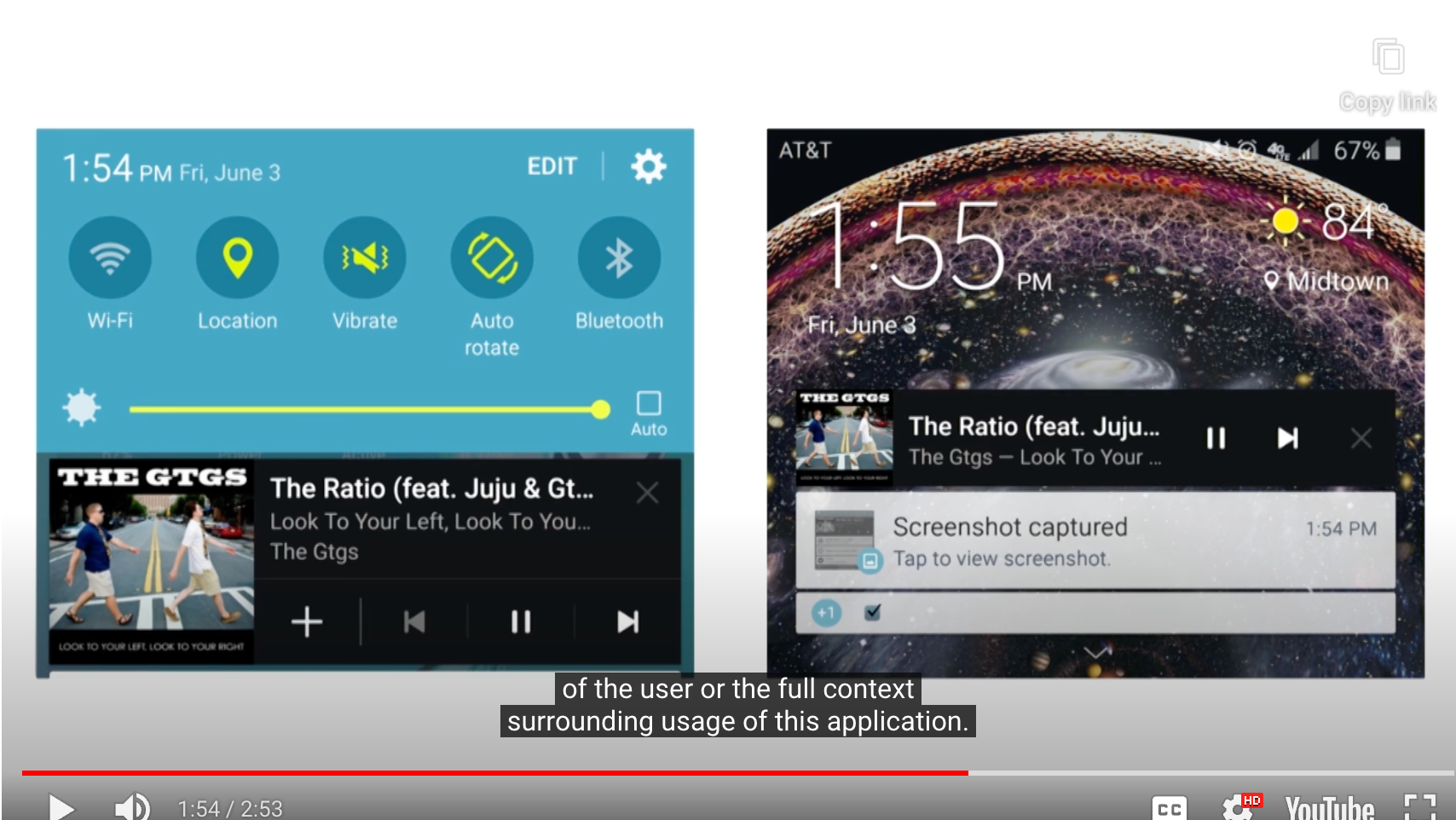
- What they pysically do
- How precise or accurate they can…
- 어플리케이션이 사용되는 상황(context)을 잘 인지하고 잇어야 한다!
Explore HCI
- REFLECT
- What the limitations of the human ability are
- in the domain of HCI we chose
- What the limitations of the human ability are
- educational technology
- Cognitive issues is important
- surrounding design technology
- Cognitive issues is important
- VR
- main concern might be perception
- how we physically interct with VR system
- main concern might be perception